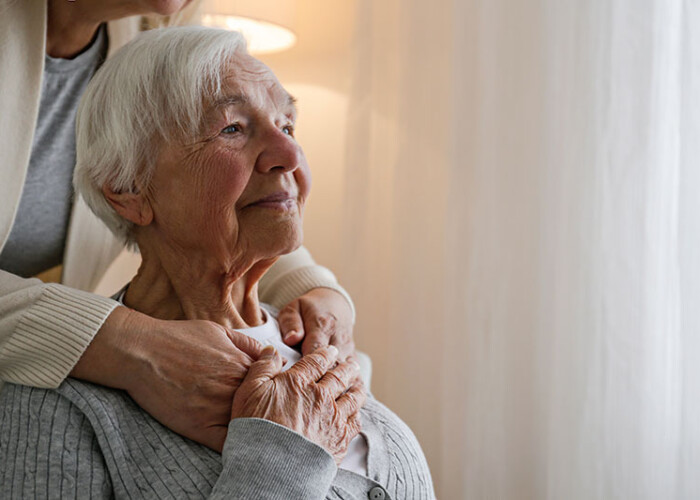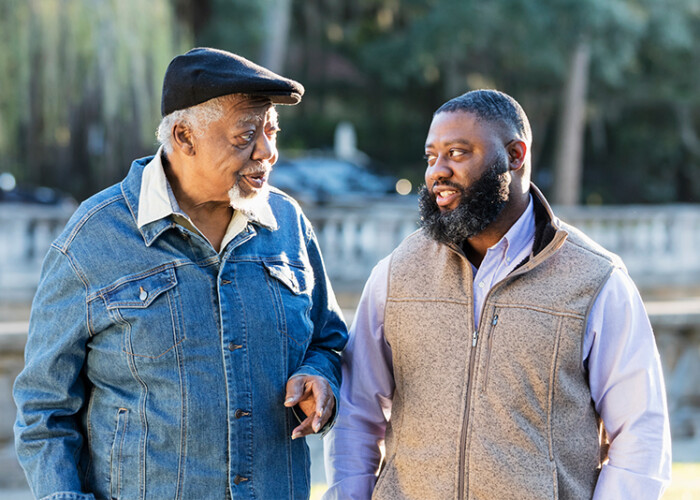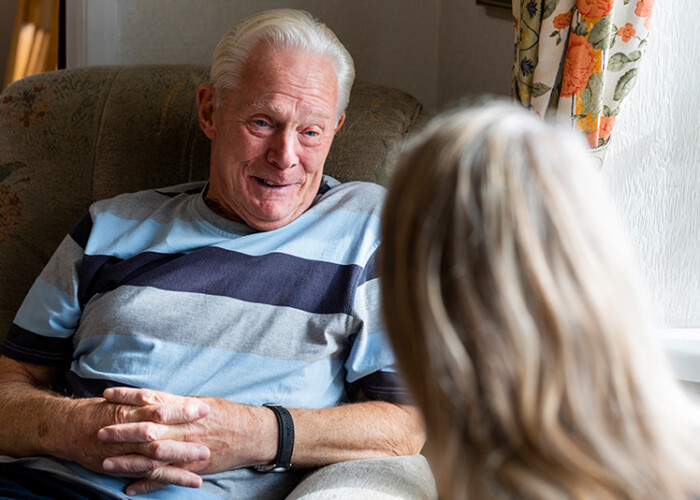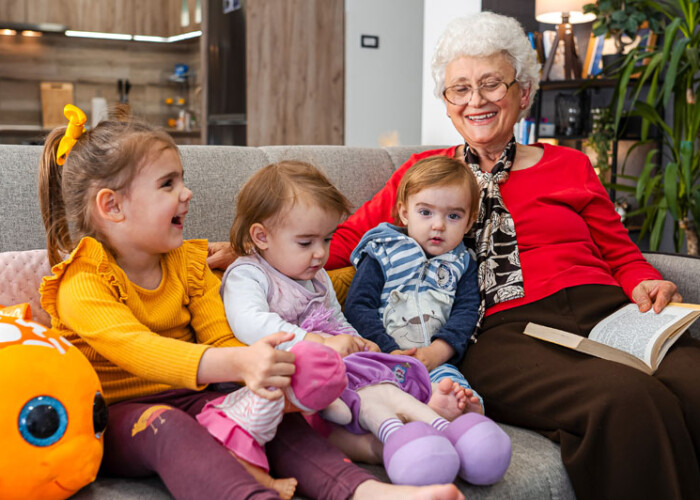Senior Independence
Struggling to Let Someone Lighten Your Caregiving Load? This Might Be Why.
Learn why it’s so important to allow someone to help lighten your caregiving load, and why you may be feeling so resistant to the idea.
The moment Mom is discharged from the hospital, you exhale, believing the toughest part is finally behind you. But instead of bouncing back, she seems drained, anxious, or even weaker than before. She’s struggling with simple tasks, isn’t sleeping well, and feels overwhelmed.
This wasn’t how you pictured recovery. Instead of a turning point, it feels like she’s slipping backward.
What’s going on?
The Unexpected Challenge of Post-Hospital Recovery
Leaving the hospital doesn’t always mean the body is ready to heal. Many older adults experience post-hospital syndrome—a state of extreme stress and vulnerability that can slow recovery, lead to new health complications, and even increase the risk of readmission.
Stress plays a bigger … Read More »
Why You May Be Noticing an Accelerated Progression of Alzheimer’s
If you’re noticing a more rapid progression of Alzheimer’s lately in someone you love, there are several reasons you’ll want to explore.
Wouldn’t it be wonderful if there were a detailed Alzheimer’s care manual, complete with step-by-step instructions and insights into what to expect at every stage? While there are general patterns in the progression of Alzheimer’s, the disease unfolds uniquely for each person. This unpredictability can make caregiving especially challenging, as you never quite know what the next day—or even the next hour—might bring.
What Is Senior Social Frailty and Who Is at Risk?
It’s easy for older adults to slip into spending too much time alone, which can lead to senior social frailty.
Not so long ago, we were all taking precautions to protect ourselves and loved ones from the spread of COVID-19. For older adults, who were especially vulnerable, this meant isolating at home and avoiding social interactions. While these measures were necessary for safety, they created a new norm of solitary living for many seniors—one that has persisted long after the height of the pandemic and is causing a condition known as senior social frailty.
Recognizing and Resolving Senior Anxiety
If you suspect senior anxiety in someone you love, help is available.
Does an older adult you care about seem more withdrawn, restless, or forgetful than usual? While these changes may appear to be part of aging, they might actually indicate something deeper: senior anxiety.
Anxiety is more than just occasional worry or stress. In older adults, it can manifest in subtle or unexpected ways, including:
Persistent, obsessive thoughts
Recurrent nightmares that disrupt sleep
Repetitive behaviors, like checking and re-checking that appliances are off
Physical symptoms, such as sweating, dizziness, or a racing heart
Overreactions to otherwise manageable stressors
What Contributes to Anxiety in Aging Adults?
Aging brings unique challenges that may contribute to anxiety, including:
Side effects from medications
Chronic illnesses or reduced mobility
Grieving the loss of a loved one
Concerns about declining independence or financial stability
Unresolved childhood trauma
These factors, combined with changes in … Read More »
Six Rs to Improve Dementia Care
Use these six essential tips to improve dementia care for someone you love.
Caring for someone with dementia is one of the most meaningful yet challenging roles you can take on. It’s important to remind yourself regularly: You are doing your best. You are making a difference. A little self-affirmation goes a long way, but there’s more to consider when caregiving gets tough. Enter the Six Rs of dementia care—a framework designed to help improve dementia care and better manage the complexities of the disease.
What Are the Six Rs of Dementia Care?
The Six Rs offer a practical, compassionate approach to navigating difficult dementia-related behaviors. By following these steps, you can create a more peaceful, supportive environment:
Reassure
Dementia can make familiar routines and environments suddenly feel intimidating or strange. Loud noises, changes in lighting, unfamiliar visitors, or even … Read More »
How to Be There for a Senior During a Temporary Assisted Living Stay
A temporary assisted living stay can be less overwhelming and more comfortable with these tips.
After a hospitalization or surgical procedure, the doctor may recommend a temporary assisted living stay before the person returns home. This is typically a short-term time of intensive therapy to promote healing and recovery. However, the thought of moving into a nursing home or assisted living facility even for a matter of weeks or months can be extremely difficult to accept.
Parkinson’s Communication Tips to Help You Stay Connected
Try these Parkinson’s communication tips to enhance your ability to connect with someone you love.
Imagine trying to share your thoughts, feelings, or even a simple idea with someone you love, only to feel as though your words are getting lost. Now, consider how isolating it must be if this were an everyday struggle. For someone living with Parkinson’s disease, this is often the reality. Communication becomes increasingly difficult as the disease progresses, creating frustration and emotional strain for both the person with Parkinson’s and their loved ones, making it crucial to know effective Parkinson’s communication tips. It begins with understanding how communication can be affected by the disease.
The Creative Dementia Care Strategy You Need to Try
Improv is one creative dementia care strategy that can be both effective and fun.
Creativity, adaptability, and a healthy dose of lighthearted fun are some of the top ingredients to healthy and effective dementia care. It stands to reason then that a spontaneous activity like improvisation is a great way to connect and engage with someone struggling with cognitive challenges. Not only does it allow you to pivot and embrace unexpected plot twists, but this creative dementia care tactic helps you to learn more about the person in your care.
Is Daily Bathing for Seniors Helpful or Harmful?
Learn the pros and cons of daily bathing for seniors.
Sinking into a warm, soothing, bubble bath at the end of a stressful day, and stepping into a hot, invigorating shower first thing in the morning are daily pleasures for a great many of us. However, it is possible to have too much of a good thing in regards to bathing habits for older adults. You might want to rethink daily bathing for seniors, for a number of reasons:
The Life-Changing Benefits of Purposeful Living for Seniors
Purposeful living for seniors opens new doors to health, happiness, and fulfillment each day.
What exactly is it that gets you out of bed every day? If you’re part of the sandwich generation, providing care for both older and younger loved ones, your list is probably quite extensive! As the nest empties, however, it becomes important to redefine our identity and learn new ways to bring meaning to every day.

















